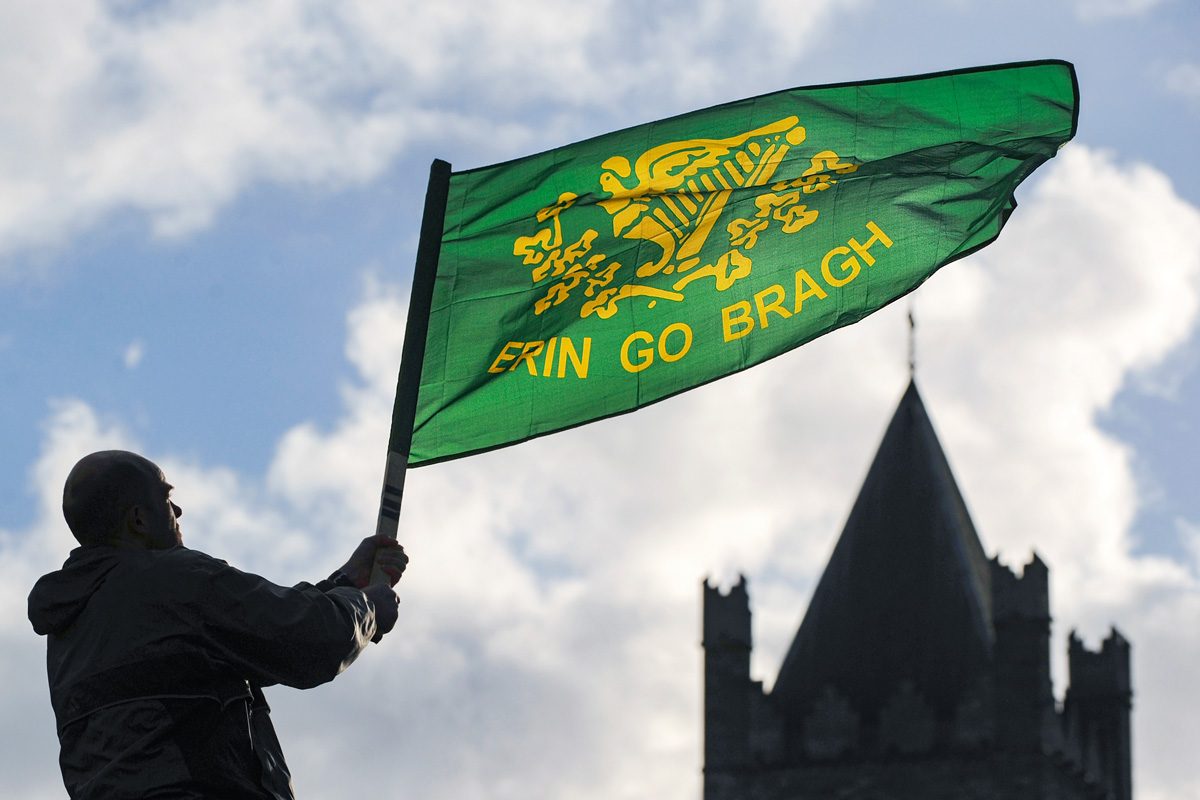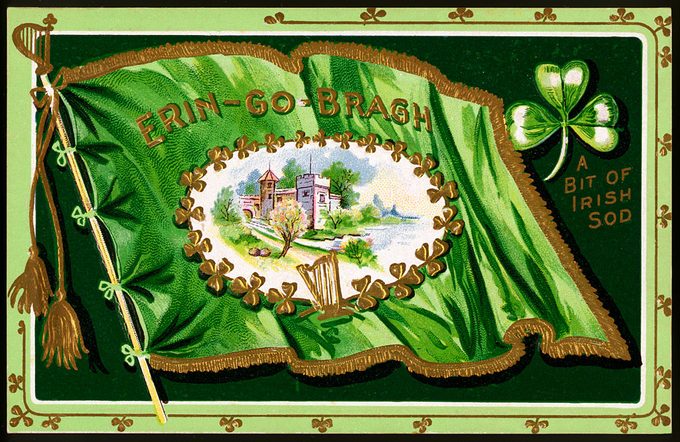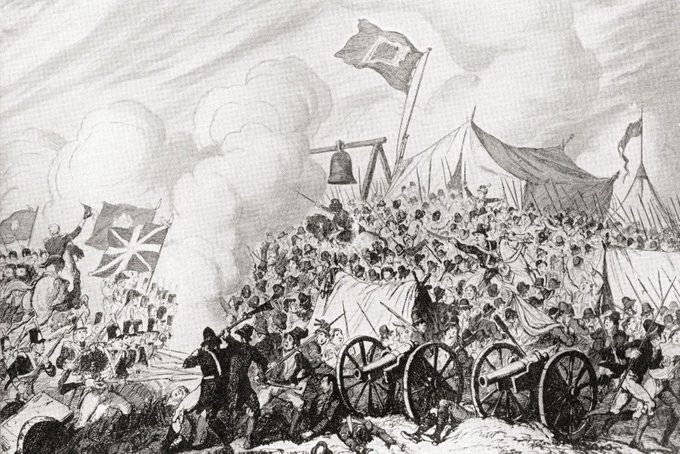Here's the "Erin go Bragh" meaning and where the common St. Patrick's Day saying came from. Hint: It's rooted in rebellion.

What Does “Erin Go Bragh” Mean?

One of the best ways to celebrate St. Patrick’s Day in a truly meaningful way is by embracing the Irish language! And if there’s one phrase you should have on your radar, it’s “Erin go Bragh.” But what does it actually mean? We’ve got you covered!
“Erin go Bragh” isn’t just a festive saying—it has deep historical and political roots, much like iconic Irish symbols such as the four-leaf clover. Understanding its significance will give you a richer appreciation of Irish culture and history. That’s why we’re giving you all the details about this phrase’s meaning, origins, pronunciation and more.
So why not make learning Irish phrases a St. Patrick’s Day tradition? Start with “Erin go Bragh,” and by the time the celebrations are in full swing, you’ll have a deeper connection to the holiday—and to Ireland itself!
Get Reader’s Digest’s Read Up newsletter for more holiday tips, fun facts, humor, cleaning, travel and tech all week long.
What does “Erin go Bragh” mean?

Erin go Bragh is sometimes also spelled Erin go Braugh. Both are an anglicization of Éire go brách, which literally means “Ireland to the end of time.” The word Erin is of Gaelic origin and is an Irish word for “Ireland.” The second part of the phrase is “go bragh” or “go brách,” meaning “til the end of time,” which has also been expressed as “til doomsday.”
What are the origins of Erin go Bragh?

By most accounts, the roots of the phrase trace back to the Irish Rebellion of 1798. This was when a group of Irish rebels staged an uprising to protest against British rule. Unfortunately, their attempt to garner national support and organize a unified widespread protest was unsuccessful, and they were defeated in a bloody battle that resulted in many casualties. However, there was an Erin go Bragh flag, as the rebels used the anglicized version, “Erin goes Brah,” on their banners and flags during the fight to express their allegiance to Ireland; it also served as a rallying cry.
One of the earliest appearances of the phrase in the United States was in the 1840s. It was used on an old green-and-gold Irish flag flown by Saint Patrick’s Battalion, a unit of Irish-American mercenaries and U.S. deserters who fought alongside Mexicans and Europeans against the United States in the Mexican-American War.
How do you pronounce Erin go Bragh?
The English pronunciation of “Erin go” is exactly the way it is spelled, then the “agh” in “Bragh” makes an “ah” sound. Put together, it’s pronounced “Erin-go-brah.”
How is Erin go Bragh used today?
In modern usage, the phrase is translated as “Ireland forever.” Most people who use the phrase today likely don’t know the historical and political origins of the slogan. It has now become a sort of slang, often used as part of the St. Paddy‘s Day pop-culture lexicon, shouted at parades (even while the Chicago River turns green) or in place of “Cheers!” as a toast with a mug of green beer. Still, it is sometimes used by those of Irish descent to express their love for their mother country.
How do you respond to Erin go Bragh?
Respond to “Erin go Bragh” by saying it back or responding with “Happy St. Patrick’s Day” or “Cheers!” Another response is “Sláinte,” which generally translates to “good health” or “cheers.”
Why trust us
At Reader’s Digest, we’re committed to producing high-quality content by writers with expertise and experience in their field in consultation with relevant, qualified experts. We rely on reputable primary sources, including government and professional organizations and academic institutions as well as our writers’ personal experiences where appropriate. We verify all facts and data, back them with credible sourcing and revisit them over time to ensure they remain accurate and up to date. Read more about our team, our contributors and our editorial policies.
Sources:
- Dictionary.com: “Erin go Bragh”
- BBC: “The 1798 Irish Rebellion”
- Merriam-Webster: “Erin go bragh”






















